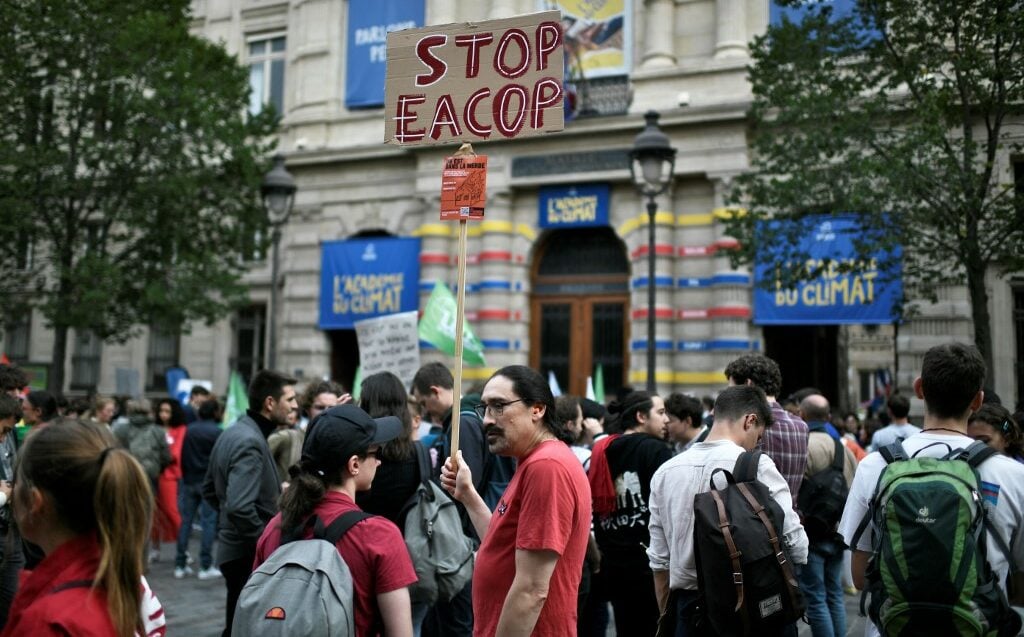A Paris court has thrown out a lawsuit filed against TotalEnergies by six NGOs, including two French and four Ugandan groups, over the controversial East African Crude Oil Pipeline.
The $5bn pipeline is set to run from Uganda’s Lake Albert oil reserves to the Tanzanian port of Tanga, displacing an estimated 100,000 people from their land, according to environmental campaigners.
The NGOs had accused Total Energies of failing to consider human and environmental rights, but the French court ruled that they had failed to respect legal procedures and presented different grievances during the trial than when the case was launched in 2019.
During the trial, the NGOs presented over 200 pieces of supporting evidence in an attempt to strengthen their case, but the judge ruled that the case, which had been filed using a fast-track procedure, was beyond the court’s capacity and required thorough examination.
Case undermined by legal uncertainty
The six NGOs had originally lodged their complaint four years ago, using a then-recently adopted French law that requires multinationals and their subcontractors to demonstrate rigorous consideration of human and environmental rights in the implementation of their projects.
France was a pioneer in adopting the so-called “duty of care” laws, with other European countries such as the Netherlands, Germany, and Norway subsequently following suit.
But the Paris court observed that the law remains unclear, with no specific guidelines on how multinationals should operate, making it difficult for judges to impose sanctions.
Writing a review of the law in a legal journal, former French prime minister Bernard Cazeneuve noted that “despite what was initially announced, no implementing decree has been published to this date, leaving a number of questions unanswered”.
Despite its multiple weaknesses, the law has been prized by social and environmental campaigners. In France, three cases involving multibillion-dollar companies have been opened on the basis of this law.
NGOs’ longstanding battle against EACOP
The East African Crude Oil Pipeline has faced significant backlash from environmentalists since it was first proposed in 2015.
The online campaign #StopEACOP has received support from over 260 civil society organizations worldwide, including the pan-African climate movement 350 Africa and US-based think-tank Inclusive Development International.
Recently, 10 Tanzanian and Ugandan NGOs filed a complaint with the OECD against insurance broker company Marsh, which is backing the project.
While the OECD has no judicial power, a refusal to commit to its environmental guidelines could seriously harm the reputation of the multibillion-dollar broker if the case goes forward.
Total Energies and project partner China National Offshore Oil Corporation argue that the project is environmentally and humanely viable.
Total Energies said that the pipeline is designed to minimise its impact on the environment, and that most affected communities are receiving financial compensation.
But the lack of efficient legislative frameworks in countries where multinationals are based, and the willingness of Ugandan and Tanzanian governments to proceed with the project, are hampering the NGOs’ goal of cancelling the project. Moreover, with first oil production set for early 2025, time is running out.
The East African Crude Oil Pipeline (EACOP): Economic boon or environmental disaster?
Want to continue reading? Subscribe today.
You've read all your free articles for this month! Subscribe now to enjoy full access to our content.
Digital Monthly
£8.00 / month
Receive full unlimited access to our articles, opinions, podcasts and more.
Digital Yearly
£70.00 / year
Our best value offer - save £26 and gain access to all of our digital content for an entire year!

 Sign in with Google
Sign in with Google 



